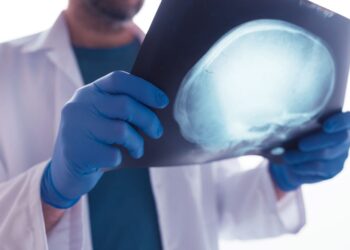With the global use of electronic medical records (EMRs), many aspects of discovery have changed in healthcare litigation. We now have a plethora of resources to use during discovery, tailoring the search based on the case allegations and the bedside data.
In 2006, the Supreme Court amended the Federal Rules of Civil Procedure, changing the trial preparation process to include the handling of electronically stored data. Many states are following these federal standards and amending their processes to incorporate the varied types of electronically stored data.
Audit Trail
One of the original goals of the EMR was to improve documentation by healthcare providers and then share that data to provide more standardized care to patients. Hospitals and healthcare organizations saw the advantage of providing the same standard of care to all individuals to increase patient safety, give efficient care and reduce waste.
Over the last few decades, the use of technology expanded not just with the EMR but throughout the healthcare experience.
A byproduct of the data inputted into the EMR at the bedside is the audit trail. The audit trail can be described as the actions of those who accessed the record, what they review, or even where they accessed the information. All this data (or metadata with meaning) is collected behind the scenes so to speak.
Mary Seibold, RN, MBA, CLNC assists her clients in reviewing audit trails. She explains, “One of the uses of the audit trail is to authenticate medical records. The audit trail is designed to capture how the EMR is in use and that could potentially include diagnostics fed into the system by monitors and bedside equipment.”
One of the downsides litigators may face when requesting the audit trail is the sheer volume of information available.
Narrowing the scope of the search to include only the relevant time frames specific to the allegations in the case helps eliminate some of the burden of discovery.
Information and Technology
As healthcare becomes more high-tech, so too does the information this technology creates.
Today, data can be pulled from IV pumps, ventilators, cardiac monitors, Pyxis machines (an automated medication dispensing system), electronic beds, bed boards (a patient tracking system), dialysis machines, etc. And as in other litigious environments, evidence can be discovered in cell phones, emails, and social media. The list is exhaustive.
According to Dr. Michael Sindoni, MD, JD, MS, an anesthesiologist, and an attorney with the law firm Edwards Kirby, “the usual requested chart of notes, X-rays, labs and vital signs is not even half the picture because it doesn’t contain the related metadata. Using the audit trail aids litigators in supporting or disproving the credibility of the caregiver and is invaluable in authenticating the timeline at the bedside. In fact, with all the available data evidence, a lot of times the focus of medical litigation is on understanding the technology and decoding the data.”
Med Mal Benefits
Medical malpractice is not the only legal arena that has benefited from EMR development.
Audit trails have become a surveillance tool used by third-party payors to track possible medical fraud, comparing billed versus services provided.
While metadata provides an abundance of data, not all of it is always relevant. As hospital and private physician practices’ implementation of EMRs went “live,” process and system issues were recognized; requiring adjustments and further development to support the correct type of data collection, and to change work processes and clinical decision tools.
Early in the EMR implementation phase, workarounds were common, causing inconsistencies in the data collection. Today, as more technology-savvy users onboard into healthcare and the electronic records evolve to better serve the different types of healthcare entities, a more consistent, more reliable data base will develop. In turn, this data will be impactful in investigating medical malpractice suits through e-discovery and will help build a more transparent and healthy healthcare system.










Comments 1
Golden rule
Do unto others as you would have them do unto you